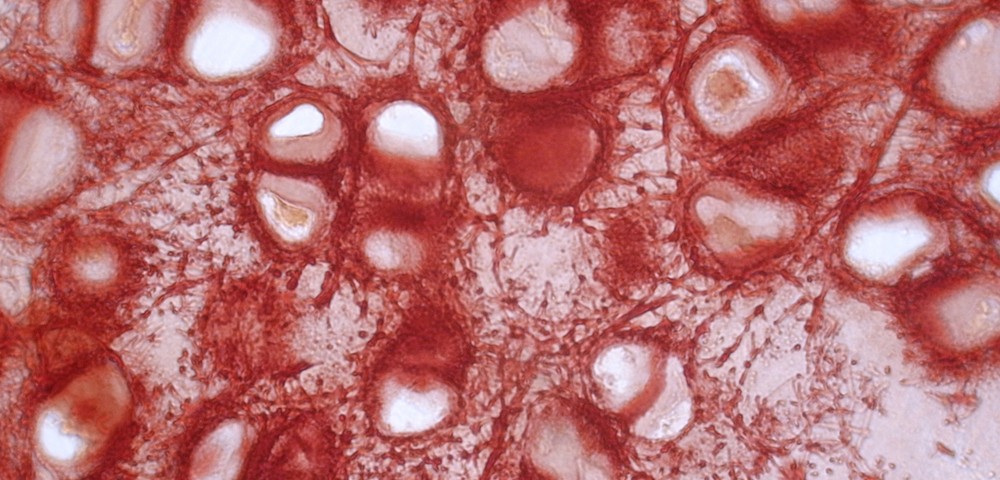A protein found mainly in cartilage tissue, called the Cartilage Oligomeric Matrix Protein (COMP), is present at high levels in patients with a poor breast cancer prognosis, and in animal studies contributed to a faster tumor growth and metastasis, Lund University researchers reported. The findings indicate that COMP has the potential to become a biomarker for more aggressive breast cancer.
The study, “Cartilage oligomeric matrix protein contributes to the development and metastasis of breast cancer,” was published in Oncogene.
Scientists, doing database research, discovered a surprising potential link between COMP and breast cancer. An analysis of tissues from more than 600 breast cancer patients revealed high amounts of COMP in tumors and surrounding tissue, but never in healthy breast tissue. Higher levels of COMP also correlated with increased metastasis, less time before a relapse, and increased mortality.
Other studies that followed, including in mice, revealed that COMP made cancer cells more resistant to natural cell death, making the breast microenvironment less favorable to healthy cells. Such changes led to increased invasiveness and tumor cell viability, reducing survival.
“We did not expect to find COMP in connection with breast cancer, and we were also surprised by the strong effect it had on the development of breast cancer in mice,” Emelie Englund, doctor of Medical Science at the Department of Translational Medicine at Lund, in Sweden, and the study’s first author, said in a news release.
Future research will focus on COMP and the molecular processes taking place during cell metabolism, as well as tumor development. “With more research, COMP has the potential of becoming an indicator of aggressive breast cancer, and thereby providing early and valuable information before deciding on an appropriate treatment,” said Anna Blom, the study’s senior author and a professor in Protein Chemistry.
Preliminary findings suggest that COMP may also be a significant marker for prostate cancer development.

